We publish a translation of the article“Putins Patriarch war Spion in der Schweiz“ of the Swiss weekly SonntagsZeitung, published on February 04, 2023;
The Russian embassy in Bern reacted with indignation. Another example of “Russophobia, which, unfortunately, is spreading in Switzerland as well”! The reason for the diplomatic frenzy is the attack on the Russian Orthodox Church of the Nativity of the Blessed Virgin Mary in Geneva. In addition to vulgar expressions, the Russian military symbol “Z” was painted on the door of the church.
The purpose of this explicit protest against Russia’s invasion of Ukraine was probably not chosen by chance. Because a young Russian priest, Vladimir Gundyaev, preached in Geneva in the 1970s. Formerly Patriarch Kirill, Gundyaev has led the Russian Orthodox Church since 2009.
Kirill is, so to speak, the Pope of approximately 150 million believers.
The church in the Geneva suburb of Chenet-Bougere, which was destroyed in October 22, is now run by Kirill’s nephew. The Patriarch blesses the military before sending them to war in Ukraine. Several priests and bishops of the Orthodox Church have spoken out against Russia’s invasion of Ukraine. Not Kirill.
In Moscow, he blesses soldiers and commanders before they go to war. He sees Russia and Ukraine as a single entity, divided by “enemies from the outside.” He warns again and again about the harmful influence of the West. For example, because Ukraine is being forced to “organize gay pride parades.”
The patriarch apparently coordinates this closely with President Vladimir Putin. For example, when he called for a ceasefire before Christmas, and Putin announced it the next day.
“Cyril has always sought to adapt to the policy of the authorities,” says Russian journalist and church expert Sergei Bychkov, And especially today, the support of the church is especially important for the state.
Because of his support for Russia’s war of aggression, Kirill is under sanctions from Ukraine, the United Kingdom, and Canada. In the EU, on the other hand, Hungary vetoed the bill.
Even the state, to which the patriarch, in his own words, has “special feelings,” did not impose sanctions on him.
“Of all the countries in the world, I have probably been to Switzerland the most often,” Kirill said in 2019 to Jean-René Fournier, then President of the Council of States. In total, 43 trips of the Russian church leader to Switzerland have been documented. He traveled across the country “to get to know the life of the people,” the patriarch once told the Swiss ambassador to Russia. “I still have many friends in Switzerland.”
But it was not only personal relationships and a passion for skiing that brought Kirill to the Alps again and again. It was about religious diplomacy, about espionage. And about money.
І. The spy who loved us
Flashback to 1971: The Soviet Union is an atheist state, but repression of the church has eased. Then 24-year-old priest Kirill was allowed to move to Geneva to represent Russian Orthodox Christians who call themselves “Orthodox” in the World Council of Churches.
Kirill leads the Geneva church from a house on rue de Beaumont that he rents from a family of doctors. Despite the fact that he arrived from Moscow as an official representative, he is quickly gaining trust among the Russian expatriate community. “He was very confident, ambitious and had a sonorous voice,” recalls a Geneva resident who met him at the time. “He had a brilliant intellectual education,” says Antoine Nivier, a professor of Russian culture at the University of Lorraine: ” He was good at expressing himself and improvising.
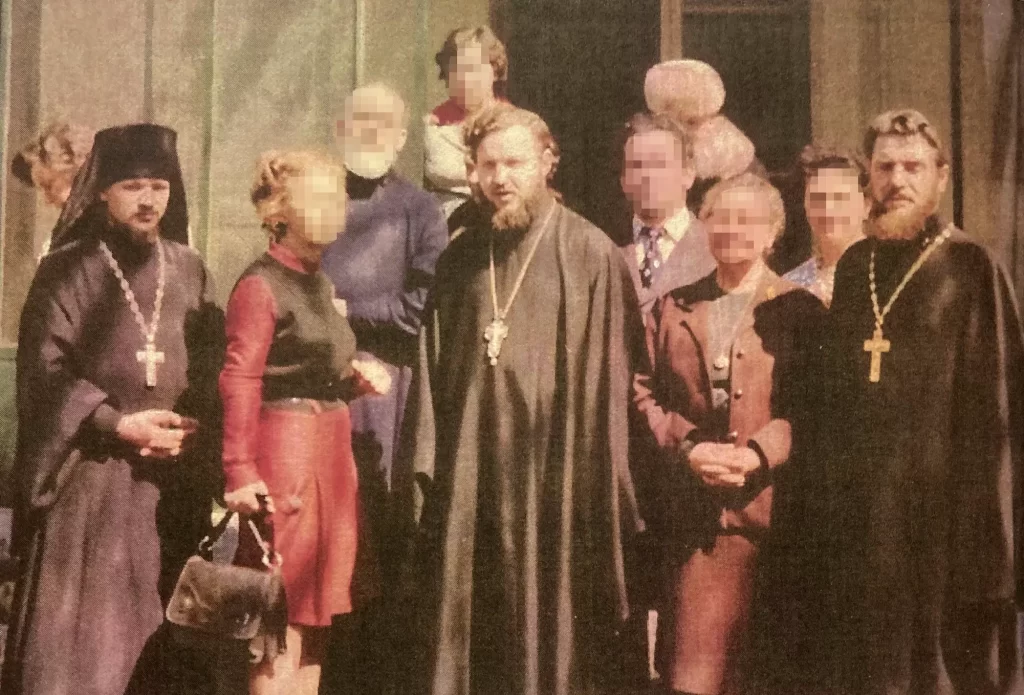
Vadim Melnikov, a former consul of the Soviet Embassy in Geneva, describes Kirill very passionately in his autobiography: “How handsome he was in his youth! Unfortunately, he could not marry. But women loved him. He was tall, young and always in a good mood. People were drawn to him.”. Melnikov was not just a diplomat, but an officer of the Soviet KGB.
From the Soviet files that were later released, historians and Russian journalists concluded that Kirill also worked for the KGB in Geneva under the pseudonym “Mikhailov.” He was supposed to collect information about the members of the World Council of Churches and influence their attitude toward the Soviet Union.
We were told: beware of these priests, because they are KGB agents
Kirill’s Geneva acquaintance
The Swiss Federal Police also created a dossier on the Russian priest. SonntagsZeitung were able to view them in the Federal Archive. This confirms that “Monsignor Kirill,” as he is called in the dossier, belonged to the KGB. Between July 1969 and February 1989, Kirill’s file contained a total of 37 entries, most of which relate only to his visa applications and entry into Switzerland. However, it is noted twice that the priest is on the list of Soviet officials “which were taken into account”. It is not explained what measures were taken.
“We were told to beware of these priests because they are KGB agents,” says a man from Geneva who wishes to remain anonymous: “In conversations with Kirill, I always had the feeling that he was looking for information. He was very friendly, but he asked a lot of questions about emigration and the clergy.” German theologian Gerhard Bezier writes in his book that the KGB wanted to influence the World Council of Churches in the 1970s and 1980s to refrain from criticizing restrictions on religious freedom in the USSR and instead criticize the United States and its allies.
Read also: A new course on information hygiene from the InfoLight.UA team.
Neither Kirill himself nor the Russian Orthodox Church wants to comment on the accusations of spying for the KGB. At the request of the SonntagsZeitung The World Council of Churches responded that “has no information” on this matter. In Geneva, Kirill’s nephew says that his uncle was probably not an agent at the time, but was “under strict control of the KGB”. But this has in no way “has not hurt his sincere commitment to ecumenical work with other churches.”
KGB officer Melnikov describes his friend at the time, Kirill, as a cheerful man who liked to party with cognac and champagne until the morning and also loved to visit the Swiss mountains. According to Melnikov, the man of God drove a flashy white BMW sedan. In 1974, Kirill and Melnikov had an accident in this car. According to a KGB officer, the BMW with Kirill at the wheel skidded on a pass and crashed into a lighting pole. This accident attracted too much public attention, Melnikov writes. Soon she and Kirill left Switzerland.
II. Winter sports and oil deals
Back in the USSR, he quickly rose in the Orthodox hierarchy. However, as a member of the Executive Committee of the World Council of Churches, he has been returning to Switzerland since 1975. And also for fun, because Kirill is a passionate skier and, according to eyewitnesses, he is also very good at skiing. The photo, which appeared on Twitter much later, shows a young Kirill in a serviceable ski suit on a Swiss slope. In Davos, he could live in the apartment of an American professor who had died in the meantime.
One of Kirill’s Swiss friends is the Savoretti family, who live in a huge apartment overlooking Lake Geneva. In the 1960s, Italian Piero Savoretti opened the Soviet market for the Fiat automobile company. Now his widow, Nina, tells the Sunday, who met Kirill in Geneva in the early 1980s. The Savorettis also have an apartment in Courmayeur, in the Italian Aosta Valley. A Russian priest can also live there when he comes for winter sports.
Still under his real name, Vladimir Gundyaev, Kirill came to Switzerland in 1971 and became an excellent skier.
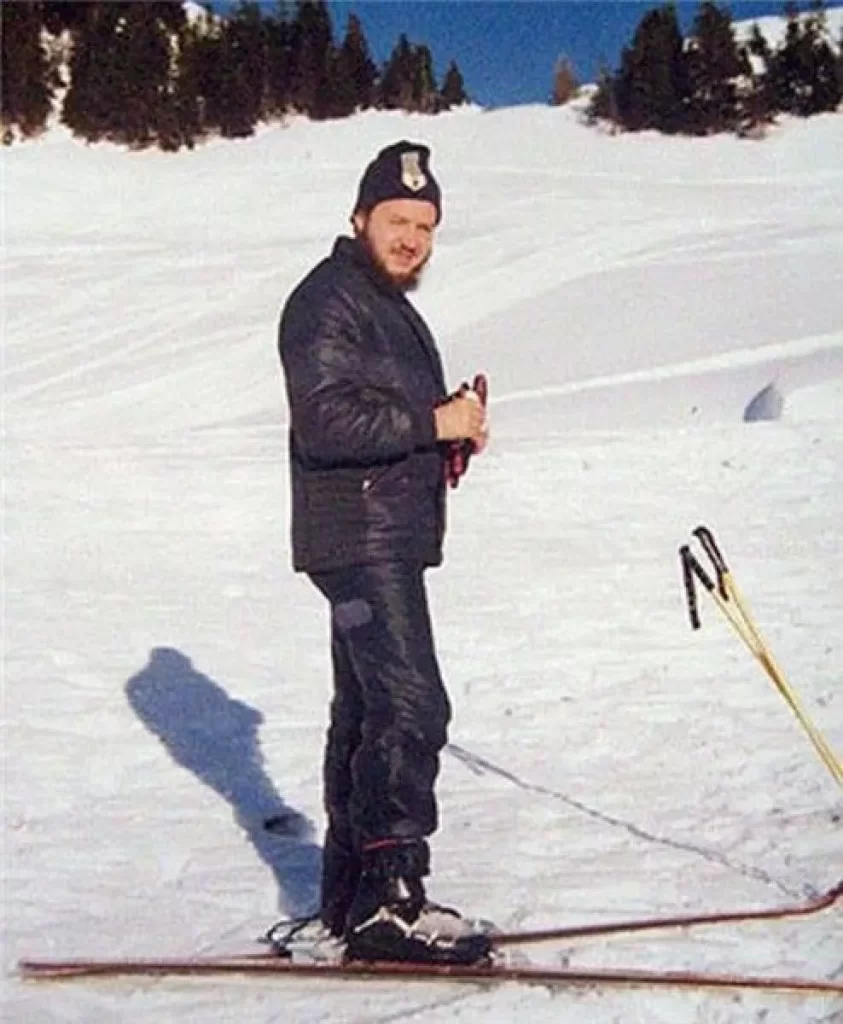
The Russian research platform Project Media describes Kirill’s relationship with the sons of industrialist Savoretti.
One son lived in Moscow but disappeared after he was accused of embezzling 20 million euros from Russian banks. Another son points to his brother in an old interview on Italian television. He worked for Kirill and “did certain things.”
In recent years, the Russian media have repeatedly written about the Swiss chalet owned by Kirill. It is impossible to find evidence of this.
Nina Savoretti speaks about the false message: Kirill “a very educated man, he appreciates the Italian Renaissance, he read a lot. But he owns nothing here! He has no hidden money. When we went to a restaurant, he would look carefully at how much he was spending. We usually invited him because he had no money.”
Kirill’s nephew in Geneva also assures “that Patriarch Kirill has neither real estate nor a bank account in Switzerland”.
However, Swiss real estate has something to do with Kirill: there is a villa next to a small church in the Geneva suburb of Chenet-Bougere, which was attacked last October.
In 1987, it was acquired by the Russian Orthodox Church with the blessing and assistance of the Soviet authorities. Today, Kirill’s nephew lives here.
In Russia, Kirill is nicknamed “Tobacco Man.” After the collapse of the USSR, the Orthodox Church experienced a revival in the early 1990s. It urgently needs money to rebuild the infrastructure that was completely destroyed by the communists. Therefore, the new Russian state grants it trade privileges: the church is allowed to import cigarettes and export seafood and precious stones and keep the profits.
In Russian society, Kirill is considered to be the head of the tobacco trade, so much so that he was nicknamed “Tabachnik” (tobacconist).
The oil trade is even more lucrative, and the church carries out these operations through Switzerland. A former Swiss federal police officer says that in the 1990s, the then-Patriarch Alexy II traveled to Geneva by private jet and sold oil quotas allocated by the government.
They say that Oleksiy used to work for the KGB.
Read also: Headliners of mobilization scandals: who is behind them?
A mysterious Russian businessman, Vitaly K., appears in Geneva in his entourage. A Swiss acquaintance describes him as “blond, with a coldness like Putin’s. He spoke little, and then only in Russian, with an interpreter. He was probably close to the special services.”. In a documentary by the Russian opposition TV channel Dozhd, Vitaly K. was named a central figure in the sale of oil to the Russian Orthodox Church.
This is also confirmed by a 2007 report by the federal police Fedpol: Vitaly K. allegedly sold 4.3 million tons of oil in Switzerland for about $2.5 billion. According to several sources, the money ended up in an account at the United Overseas Bank in Geneva, and from there it was distributed among various offshore companies.
In 1998, the Swiss authorities began an investigation of the “church businessman” Vitaly K. They suspect him of money laundering and block millions in K’s accounts. in Swiss banks. Six years later, the criminal proceedings are being terminated: due to “lack of cooperation between the Russian authorities”, as the Geneva prosecutor’s office said today.
At that time, K. has long since disappeared from Geneva. He leaves many unpaid bills, including one for a ring worth 180,000 francs.
SonntagsZeitung also failed to contact K. There is no evidence that the current patriarch Kirill was involved in the Geneva oil agreements. However, from 1989 to 2008, he was responsible for the external relations of the Russian Orthodox Church and was very close to Patriarch Alexy II.
“Tabachnyk was also authorized to sign an account with a large Swiss bank, which at times had several hundred thousand francs; It is noted that the money was used for expenses at the World Council of Churches.
III. Swiss friends and real estate gifts
In 2007, the Russian newspaper Moskovsky Komsomolets reported that Kirill had fallen on a Swiss ski slope and broken his collarbone. However, the complicated breakup could not prevent the Metropolitan from “to continue the fight against luxury in Russia”, the newspaper writes. Was this sentence meant to be ironic?
In Russia at the time, Kirill was notable not only for his loyalty to Putin but also for his unbridled penchant for luxury. The standard of living of the clergy improved significantly after the church’s booming business in the 1990s.
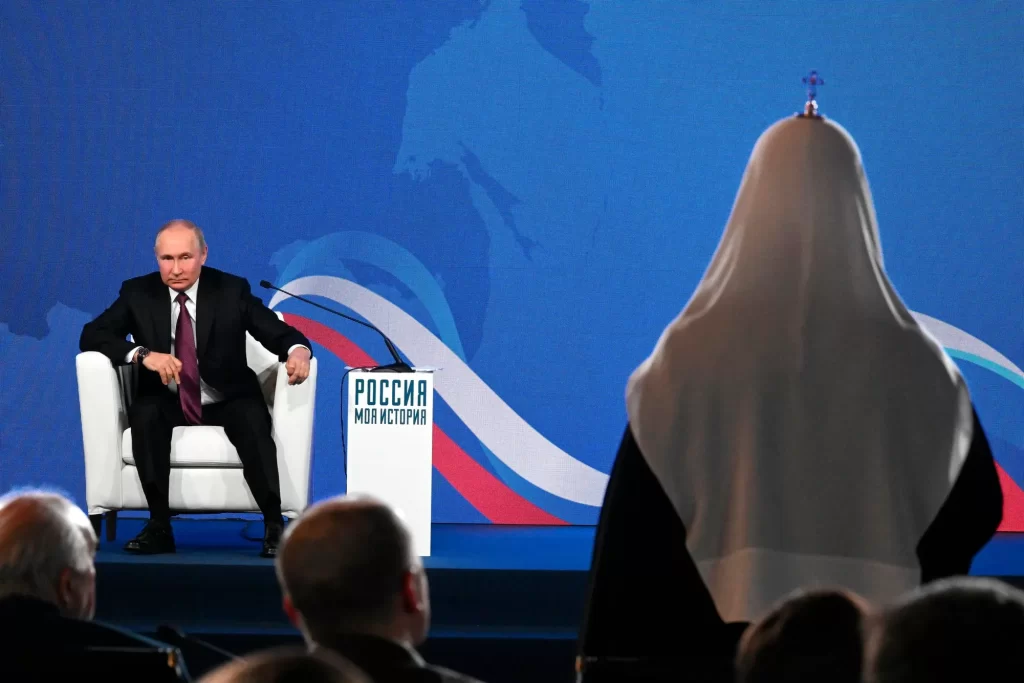
But Kirill is said to have benefited from his Swiss connections in other ways. In 2020, the Russian research platform Projekt Media found out that in 2001, a Geneva businessman, Alexander D., gave Kirill’s cousin a 120-square-meter apartment in a posh neighborhood in St. Petersburg. In addition, he sold Kirill an unfinished house that he had purchased only two years earlier. Alexander D., who is originally from Serbia, was unavailable for comment.
Now D. lives in the Canton of Geneva, works in the energy sector and has excellent connections in Russia. In 2008, his Zurich-based company was taken over by Matthias Warnig, a former East German Stasi officer. Warnig is considered a personal friend of Vladimir Putin and is the managing director of the Nord Stream 2 gas pipeline in Zug.
A few years ago, the Russian patriarch maintained close relations with Switzerland. In December 2016, he arrived in Zurich to preach at the Russian Orthodox Church of the Resurrection. At that time, eastern Ukraine was already occupied by pro-Russian separatists, and the Crimean peninsula was annexed by Russia. In Zurich, the patriarch only says that he prays “for peace in Ukraine”. He then goes into great detail on the topic of “martyrdom”, this “a great idea that is so relevant in our time.
The Zurich Orthodox Church did not answer the question about its attitude to the war today. The press service of the Patriarchate in Moscow also did not answer the question SonntagsZeitung.
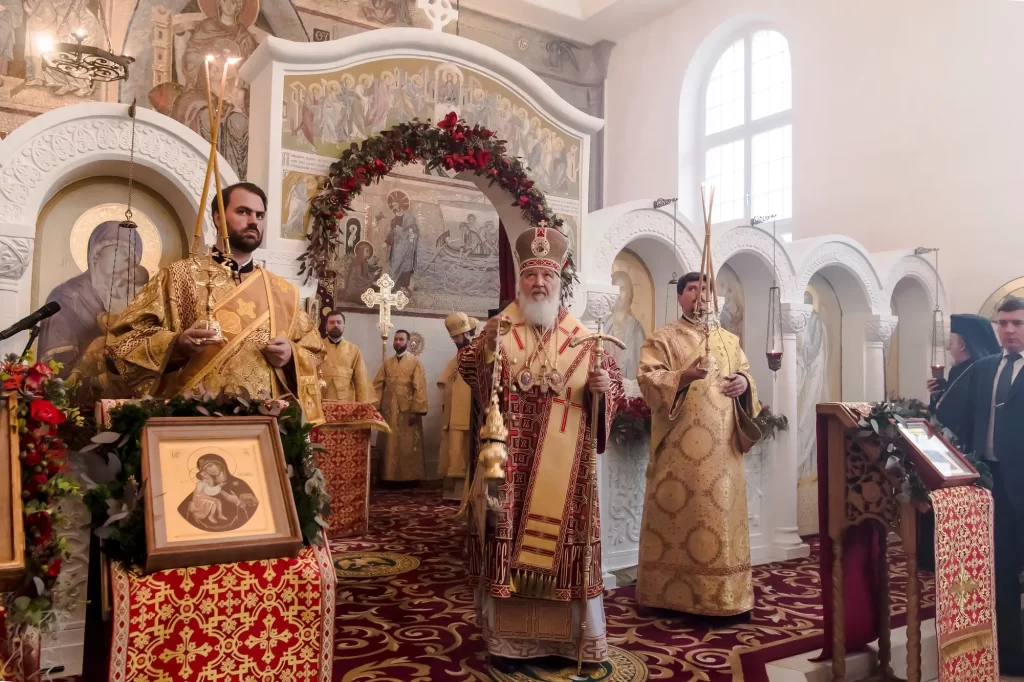
In 2018, Kirill spoke at the Federation Council of the Russian Federation and said that he had just arrived from Switzerland. People there are very rich, but no one demonstrates this wealth, and in Russia everyone puts their new Maybach or Rolls-Royce in front of their house “and thus makes the neighbors feel envious.”. Russian rich people should hide their wealth in the Swiss way, Kirill advises MPs: This would significantly improve the “psychological atmosphere” in Russia.
It is unknown whether Kyrylo ever visited his favorite country again. In 2019, Novaya Gazeta wrote that the patriarch was in poor health, so he often traveled to Switzerland for treatment. There, he spends “astronomical amounts” on his recovery. However, there is no evidence for this claim.
At the end of January 2023, on the day when Russian missiles again hit Ukrainian cities and kill Ukrainian civilians, Kirill calls on the church community in Moscow to donate money for Russian soldiers. This is necessary help as Russia faces “the entire Western world”. The Russian patriarch has never spoken of his love for Switzerland since the beginning of the war.
Co-authorship: Mark Renfer, Titus Plattner
Translation:InfoLight.UA

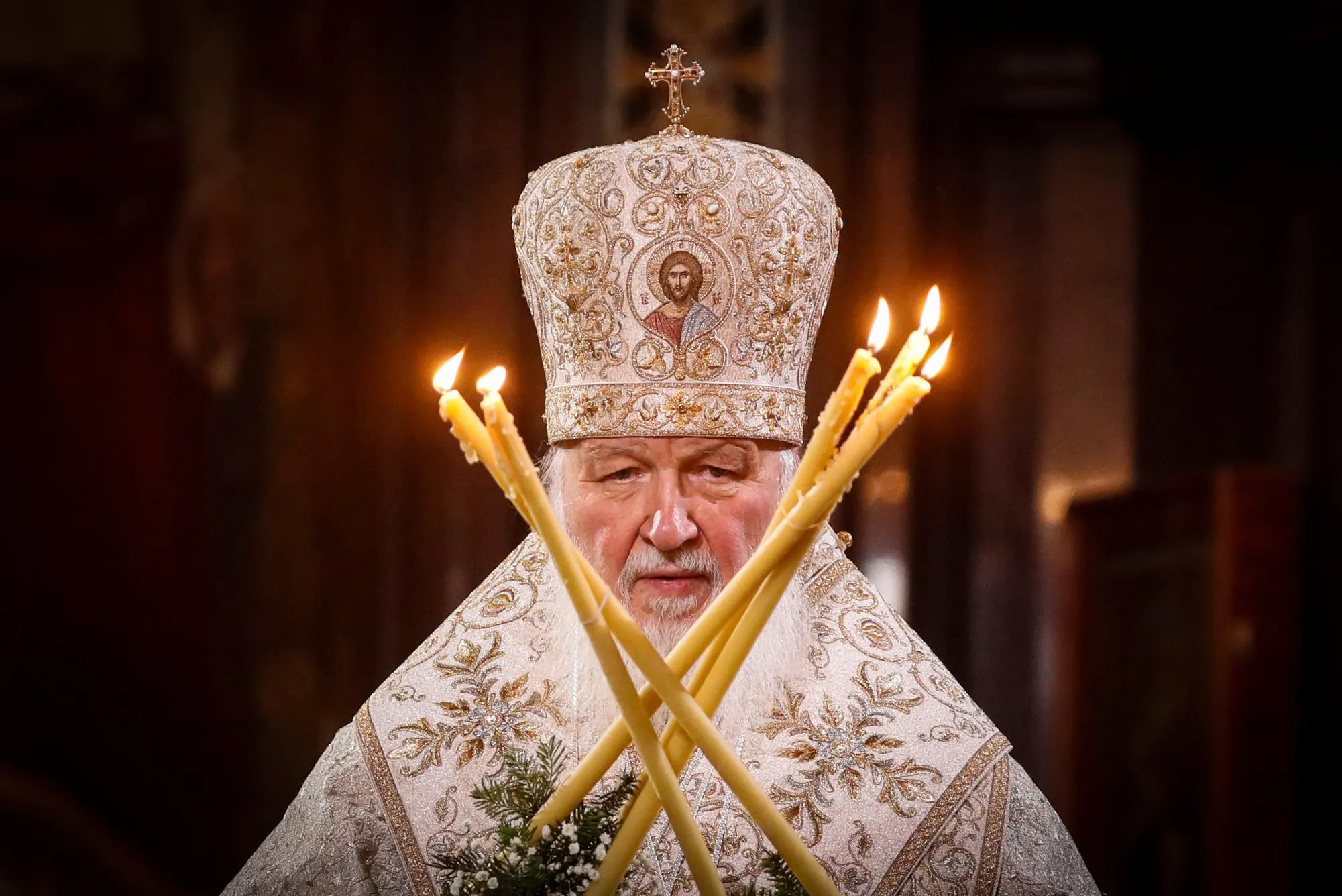
Leave a Reply